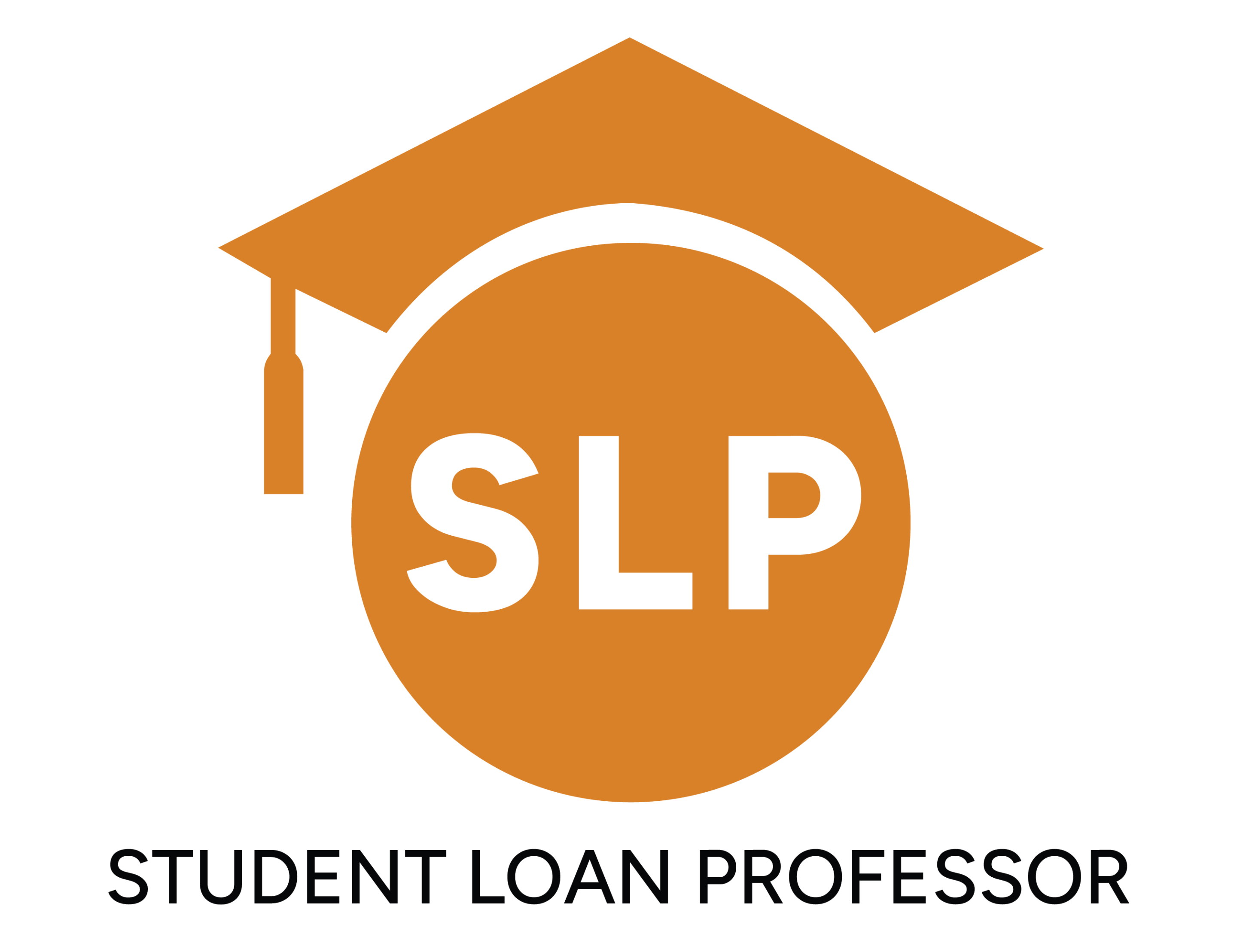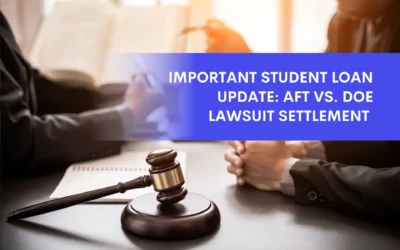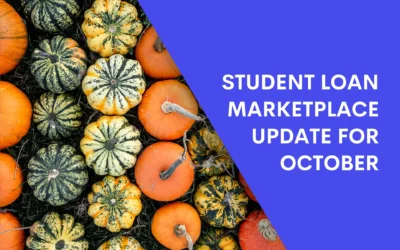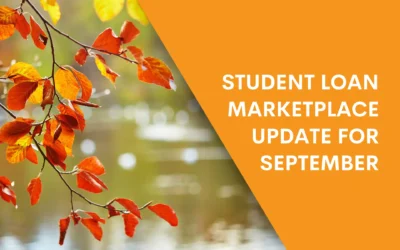Managing your debt involves more than just making your monthly payments. You also have to face rising interest rates, confusion over repayment terms, and the fear of default.
Without guidance, you may even end up paying more than necessary over the life of your loan.
Student loan help includes a wide range of services, resources, and strategies designed to help borrowers manage their debt.
Keep reading to learn why you should consider getting help with your student loan.
Key Takeaways
- Federal and private loans offer different repayment options, like IDR and refinancing.
- Government programs provide relief through loan forgiveness, deferment, and income-based plans.
- Building a custom repayment plan requires assessing your financial situation and goals.
- Loan calculators, budgeting tools, and expert advisors can maximize savings and manage debt.
Types of Student Loan Debt Help You Can Access
Private vs. Federal Student Loans
The repayment assistance options available to you will depend on the kind of loan you have, whether private or federal. This will determine the most suitable approach for your student loan assistance.
Federal Student Loans
These come with a variety of protections and repayment options, including Income-Driven Repayment (IDR) plans, deferment, forbearance, and forgiveness programs.
Federal student loans also allow you to adjust your repayment terms based on your income or job situation.
Private Student Loans
These are issued by private lenders and, therefore, lack the protections that come with federal loans.
For example, borrowers with private loans don’t get forgiveness programs or IDR options. However, many private lenders offer refinancing opportunities, which can lower interest rates.
Government Programs and Loan Forgiveness Options
If you have a federal student loan, there are numerous government programs designed to make your debt management easier:
- Income-Driven Repayment Plans (IDR): These adjust your monthly federal loan bill to match your income and family size to keep them affordable.
- Public Service Loan Forgiveness (PSLF): This provides the remaining balance on your federal loan after 120 qualifying payments. If you work for a government agency or a qualifying nonprofit, you may be eligible for PSLF.
- Occupation-Specific Forgiveness Programs: Borrowers in professions such as teaching and healthcare have access to specialized loan discharge programs. Consulting a qualified student loans expert will help you explore options that may apply to your career path.
- Deferment and Forbearance: Federal loans offer options to temporarily pause or reduce your monthly student loan payments in the event of financial hardships. However, interest may still continue to accrue during this pause.
Private Lender Assistance
While private lenders may not offer as much protection or the same level of flexibility as federal loans, there are still ways to get help with your loan:
Refinancing
With a solid credit score (usually around 700), you can refinance to potentially lower your interest rates and decrease your monthly payment amounts.
Refinancing is also available with federal loans; however, refinancing a federal loan may cause you to lose access to protections like Income-Driven Repayment plans and loan forgiveness.
Consolidations
Combines multiple loans into one, simplifying your repayments and possibly securing better terms.
Before consolidating your loans, take the time to weigh the advantages and disadvantages. Consolidation can extend your repayment period and increase the total interest you’ll pay.
How to Build a Custom Loan Repayment Strategy
Assess Your Financial Situation
Before settling on a repayment plan, understand your current financial situation. This is essential to developing a custom debt management strategy that fits your unique needs.
To do this, start by evaluating the following:
Monthly Income vs. Expenses
Calculate your total monthly income, including salary, bonuses, and alternative sources of income, then assess your essential monthly expenses — housing, utilities, transportation, etc.
This will help you determine what portion of your income you can comfortably allocate to your student loan payment.
Total Loan Amount vs. Interest Rate
Establish your remaining loan balance, the interest rates on each loan, and how much interest you accrue monthly.
This will help you identify which of your loans might benefit from refinancing or a more aggressive repayment program.
Short-Term and Long-Term Financial Goals
Do you want to pay off your loans as quickly as possible, or would you rather minimize your monthly payments?
Understanding your financial goals in the short and long term will help determine your ideal loan management strategy.
Choose the Right Repayment Plan
With a clear financial picture, you can select a repayment plan that fits your financial goals. Some common options you can consider include:
This is the default federal student loan repayment plan for federal loans. It requires equal monthly payments over 10 years.
Consider this option if you can afford the monthly payments and want to pay off your loan quickly with minimal interest costs.
Here, you start with small monthly payments, which slowly increase every two years. This is ideal if you expect your income to increase with time.
On the flip, you may also end up paying more interest over the life of your loan.
Income-Driven Repayment (IDR) Plans
If you have a federal loan and a fluctuating or low income, IDR plans like PAYE or IBR can adjust your payments to a percentage of your income.
This helps make your monthly payments more manageable, though extending the repayment period may also increase your total interest costs.
This plan allows you to extend your repayment term up to 25 years, resulting in smaller monthly payments.
It’s suitable for those requiring prompt debt relief, though it may result in higher total interest over the duration of your loan.
Pro Tip: Consult a professional for a comprehensive debt audit and help build a custom strategy to manage your student loans.
For example, at SLP, we offer a range of custom services to help you manage your loans and maximize your savings.
Tools and Resources to Better Manage Your Debt
Loan Calculators and Budgeting Tools
These are comprised of apps and online resources such as:
- Loan Payment Calculators: These use your loan balance, interest rate, and repayment terms to estimate your monthly payments. Many calculators also show how additional payments could reduce your overall interest and shorten your repayment period.
- Interest Savings Calculators: These are immensely helpful if you’re considering refinancing. They help you compare your current rate with your new rate to see how much you could save over the life of your loan.
- Budgeting Tools: These include apps like Mint, YNAB (You Need A Budget), and EveryDollar. They assist you in tracking your income and expenses, ensuring you allocate sufficient funds to your student loan payments while also meeting your other financial obligations.
Educational Resources for Borrowers
Access to current, reliable information is crucial for making informed decisions about your student loan management. Fortunately, there are a variety of educational resources available to guide you through the complexities of student loan management:
Federal Student Aid (studentaid.gov)
This government-sponsored website offers comprehensive resources to help you understand all your federal loan options.
It also provides step-by-step guides for applying to programs like income-driven repayments of Public Service Loan Forgiveness (PSLF).
National Foundation for Credit Counseling (NFCC)
NFCC offers low-cost counseling services to help borrowers manage their student loans and other debts. This can be a great option for personalized student loan debt management advice.
Non-Profit Organizations
Organizations like The Institute of Student Loan Advisors (TISLA) provide free advice, educational materials, and webinars on student loan repayments and forgiveness options.
They typically cover topics like managing student loans, financial literacy, and the tax implications of student loan forgiveness.
Student Loan Professor (SLP)
Student Loan Professor is a full-service student loan advisory company whose only focus is to help get your student loans in check.
At SLP, personalized counseling and hands-on assistance leverage tools such as IDR, PSLF, and other assistance tools to find and craft a strategy that works for you.
Ultimately, our goal is to help you get your student loans in check.
Master Your Student Loan Debt
Professional student loan help can be the difference between making monthly payments and creating a well-structured, cost-effective repayment plan.
With expert advisors like Student Loan Professor, you can unlock savings, streamline your financial plan, and avoid the pitfalls that trip up so many borrowers.
Contact us today for help making the most of every opportunity to reduce your college debt and take control of your financial future.
Brandon Barfield is the President and Co-Founder of Student Loan Professor, and is nationally known as student loan expert for graduate health professions. Since 2011, Brandon has given hundreds of loan repayment presentations for schools, hospitals, and medical conferences across the country. With his diverse background in financial aid, financial planning and student loan advisory, Brandon has a broad understanding of the intricacies surrounding student loans, loan repayment strategies, and how they should be considered when graduates make other financial decisions.





